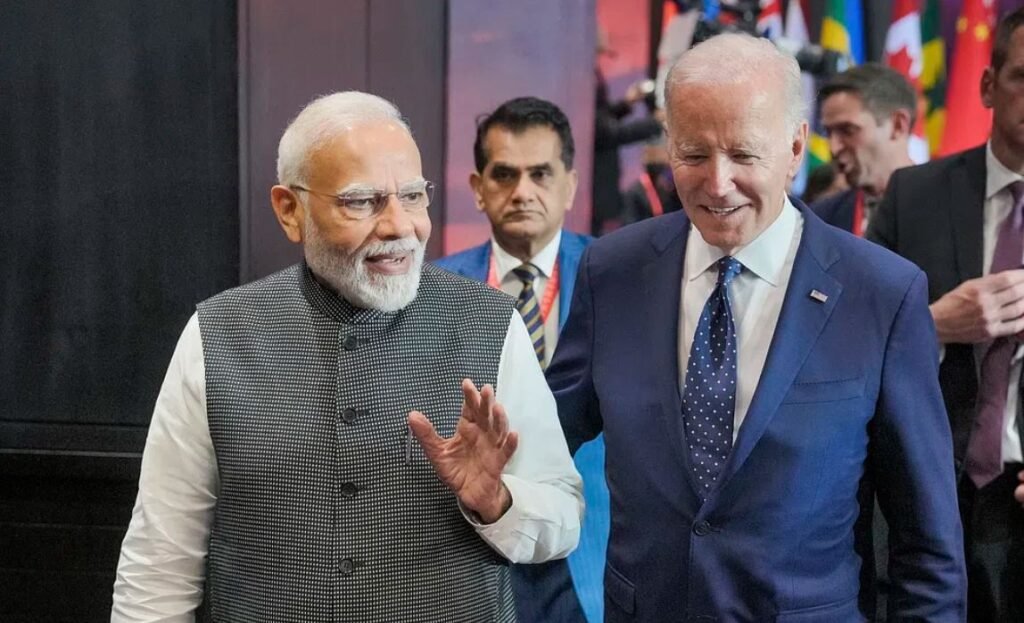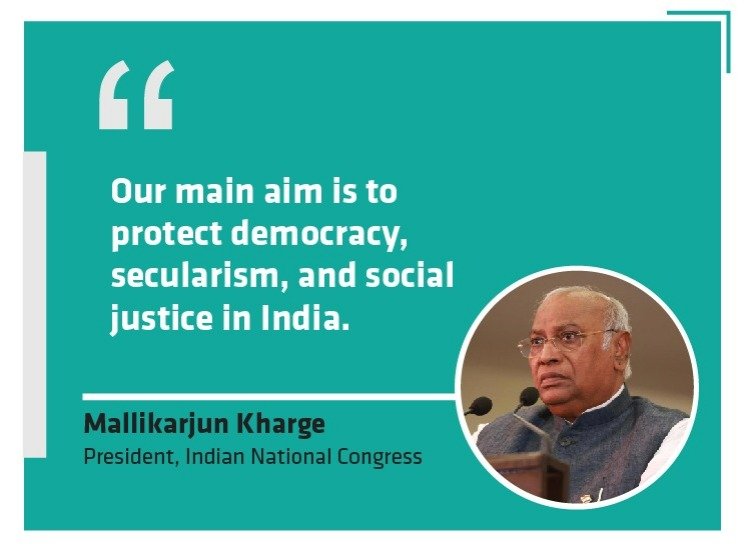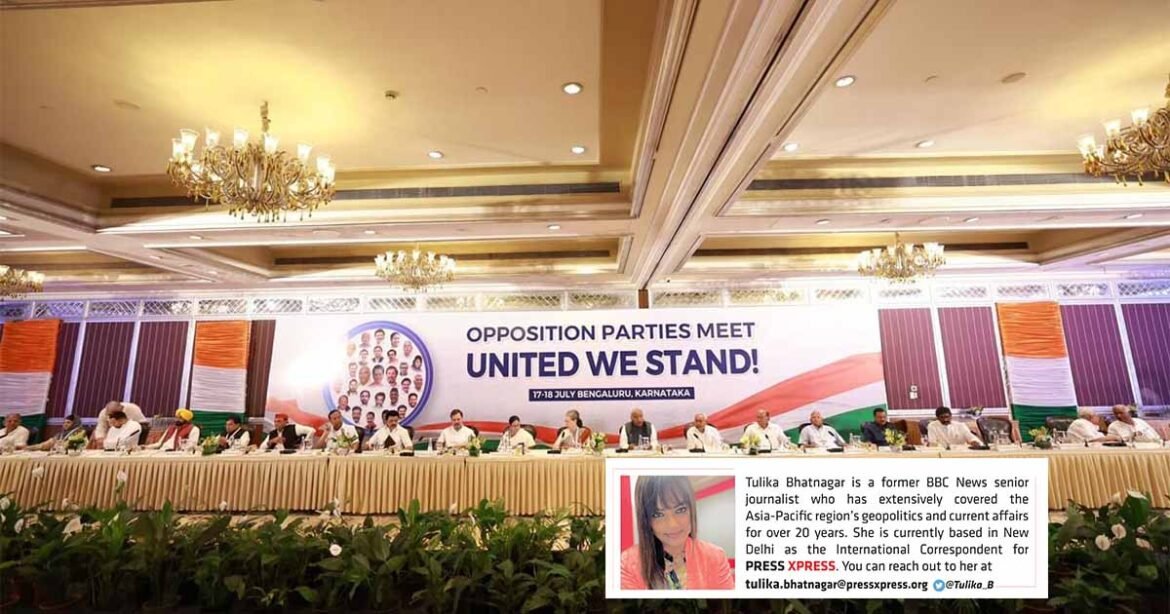Twenty-six opposition parties in India have come together to form a new, official alliance, in what is being seen as a significant reshaping of the country’s political landscape. Can this alliance give a serious challenge to the populist Prime Minister Narendra Modi in the 2024 general election?
The new coalition has been named I.N.D.I.A., an acronym that stands for “Indian National Developmental Inclusive Alliance”.
Previously, the opposition bloc was known as the UPA, or United Progressive Alliance. But it struggled to maintain a united front amidst the political parties’ power clashes, personality rows, and ideological differences. According to the leaders, they have now come together to “save democracy” and defend the “idea of India”.

An uphill task
The newly formed I.N.D.I.A. alliance has a catchy name that seems to have grabbed the spotlight away from the ruling Bharatiya Janata Party (BJP), at least in the near term.
But there are more pressing concerns that will make the alliance’s journey to the 2024 elections a formidable challenge, experts say.
First up, the BJP-led National Democratic Alliance (NDA) governs 15 of India’s 28 states. The BJP also holds an overwhelming majority in the Lok Sabha – the lower house of India’s parliament – where it won 303 of the total 543 seats in the 2019 election.

And one of the biggest strengths of the ruling coalition is the leader himself. PM Modi enjoys immense popularity down to the grassroots level and has emerged as the de facto face of a united coalition.
In comparison, the “opposition alliance has no such leader and there is no unity (amongst them)”, said Dr Suvrokamal Dutta, an acclaimed international political, economic, and foreign policy expert who supports the BJP.
Dr Dutta told Press Xpress that the alliance will soon face a strong legal battle over its choice of name after the country. “It’s in direct violation of the Emblems Act. The election commission’s rules and regulations do not permit the use of the word ‘India’ for any political rally, publicity, or agenda.”
The Emblems Act states that the name of the “Republic or Union of India” cannot be used for personal or commercial purposes.
“Many senior opposition leaders including Nitish Kumar (chief minister of eastern Bihar state), Lalu Prasad Yadav (president of Rashtriya Janata Dal regional political party), Akhilesh Yadav (president of Samajwadi regional political party), and MK Stalin (chief minister of southern Tamil Nadu state) among others disagreed with the choice of the alliance’s name,” said Dr Dutta. “I won’t be surprised if a Third Front comes up, a breakaway faction of the so-called I.N.D.I.A. alliance.”

What about Hindu nationalism?
According to the opposition leaders, through the I.N.D.I.A. alliance, they “have come together to defeat the hatred and violence being manufactured against minorities”.
“Our main aim is to protect democracy, secularism, and social justice in India,” said Mallikarjun Kharge, president of the main opposition Congress party after the launch of the newly formed alliance.
Critics point out that naming the alliance I.N.D.I.A. is also an attempt to challenge the BJP’s continued pursuit of the Hindu nationalist agenda has severely impacted religious minorities, particularly Muslims.
Earlier this year, a report by the US State Department on Religious Freedom 2022, expressed a number of concerns regarding the state of religious minorities in India. It outlined “continued, targeted attacks against religious communities” that promote “dehumanizing rhetoric” and “hate-fueled violence.”
The Indian government rejected the report’s findings as “flawed” and “biased”. It said that it will continue to have a “frank conversation” with the US government on the matter.

Meanwhile, the BJP-led ruling coalition is focusing on development and performances as its main agenda for the upcoming elections, according to local media reports.
On the same day as the coalition was announced, the BJP held a meeting with its 38 political allies, reportedly forming 10 clusters, each led by a Union Minister and consisting of leaders of allies. The idea is to organize electoral strategies effectively, including consolidating NDA’s position in minority-dominated areas. The aim, to win at least 50% of the total votes in the elections.
PM Modi, who chaired the meeting, also launched a sharp attack on the I.N.D.I.A. alliance, calling it a “conclave of the corrupt” and based on “dynasty politics”. He added that “alliances built on negativity have never won”, while “the mood of the nation” is in NDA’s favor.


